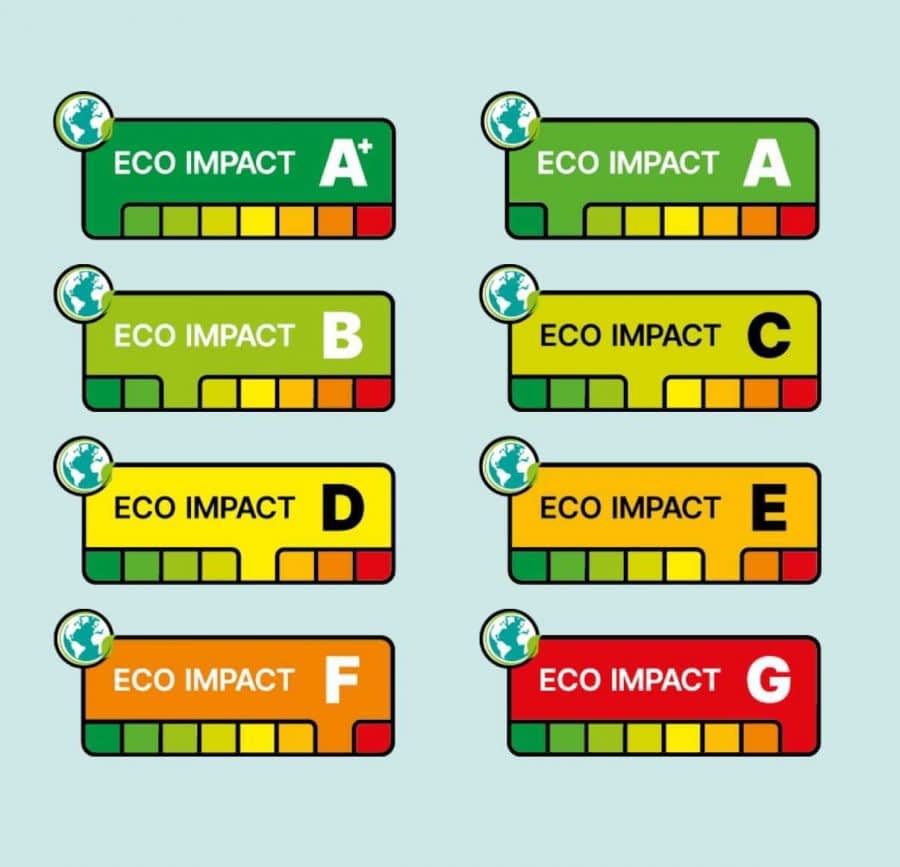A new pilot project backed by some of the world’s largest food production companies will begin testing an eco-label platform on more than 100 products sold in the United Kingdom next autumn.
The goal is to offer consumers a traffic-light style labeling system on food packages to let them evaluate at a glance how environmentally friendly the food packs being purchased are.
The Mondra and EIT systems are unique globally, in that they both allow two products of the same type to be compared on their individual merits via a complete product life cycle analysis.
Companies such as Nestlé, Co-Op, Tyson Foods and Sainsbury’s are all board members of the new organization, Foundation Earth, that is trialing the new platform with the support of Mondra, an advisory company that developed the labels.
See Also:€100B in E.U. Spending Fails to Reduce Emissions in Ag Sector, Audit Finds“Foundation Earth is the culmination of years of work from our EIT Food consortium and from the likes of Oxford University,” Andy Zynga, chief executive of EIT, told The Guardian. “It will bring a credible and clear front-of-pack labeling system on food products right across the continent.”
According to the foundation, a full rollout is expected by 2022 if the pilot is successful.
Food included in the traffic-light labeling pilot project will be measured with criteria that include water pollution, biodiversity loss, water usage and total carbon emission; measurements that will take into consideration the life cycle of every labeled product.

Photo: Foundation Earth
Carbon emissions will determine 49 percent of the final eco-label of a product, with the other criteria weighing each 17 percent. Consumers then will be able to compare products within a specific category, with ratings running from a ‘Green A+,’ the most environmentally-friendly packaging to the lowest score of a ‘Red G.’
The decision to place the most considerable emphasis on carbon emissions will benefit olive oil producers. The International Olive Council estimates that for every liter of virgin olive oil produced “in a mature semi-intensive orchard with an average crop yield,” there is net carbon sequestration of 8.5 kilograms.
Foundation Earth’s backers hope that the project’s final results will allow the new eco-label to be considered for adoption across Europe. Currently, dozens of different eco-label systems co-exist, including the well-known E.U. Ecolabel, which is currently applied only to non-food products.
“The Mondra and EIT systems are unique globally, in that they both allow two products of the same type to be compared on their individual merits via a complete product life cycle analysis, as opposed to simply using secondary data to estimate the environmental impact of an entire product group,” Jago Pearson, chief strategy officer at the U.K.‘s artisan food producer Finnebrogue, told JustFood.
According to an E.U.-backed Eurobarometer survey, European consumers do not yet put sustainability among their top priorities when purchasing food.
Survey respondents prioritized taste, food safety and cost as the three most important criteria for purchasing decisions. The origin of food and its nutritional qualities are considered by 30 percent of respondents. In comparison, only 15 percent of them take the sustainability of the packaged food they buy into account.








